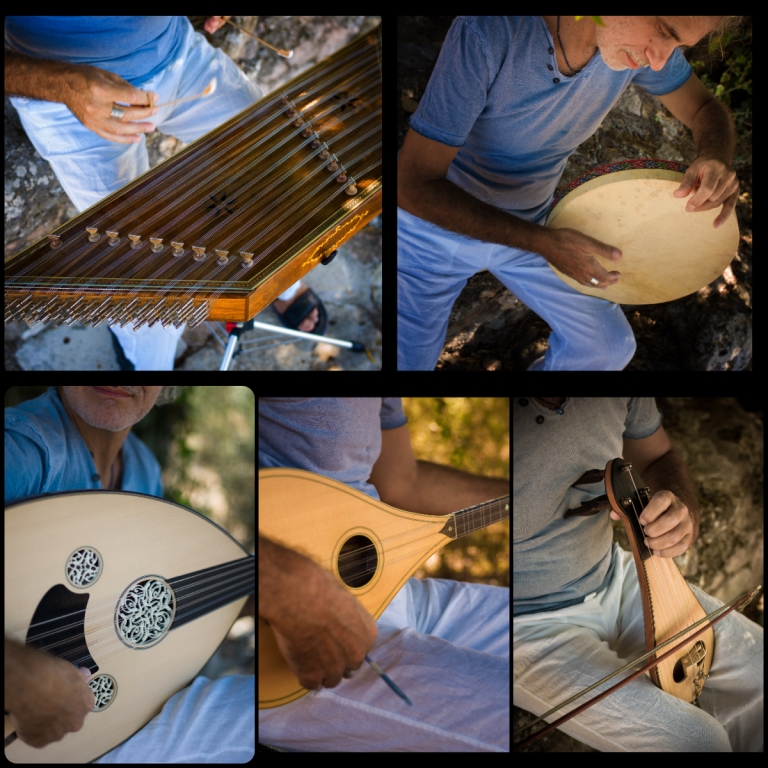
a. Music Theory and Improvisation
b. Instruments: Oud, Saz, Santur, Lyra, Percussion (Bendir, Riq, Darbuka, Davul)
The modes of oriental musical systems stretching from the Balkans till India, are based exclusively to the melody. It is a monophonic music, which explores and developes as no other, the possibilities of the melody. It uses microintervals (smaller divisions than a semitone which can be divided up to 5 commas), a very rich organization system of tetrachords and scales called MAKAM, a big variety of forms integrated in concert, including a tremendously important chapter: the Improvisation. The makams are not just scales, rather they are musical receipts to built a state of anima. They are an organised system of scales used as a guide to freely achieve standard patterns where the ornamentation is part of the language itself. The Rhythms in this music is full of “dancing” rhythmic patterns from 2/4 up to 120/4 circles, (with special emphasis on the 5,7,9,10,11,13/8, beat rhythms) and they are influenced by the nature, poetry, astronomy. They have their own organization system called “USUL” where they appear with special accents and phraseology.
In this courses series Dimitri Psonis will work on both, ottoman clasical and folk music, from Greece, Turkey, the balkans, as well as other regions of orient. The courses are addressed to everybody who is interested in this music, either beginners, or already familiar or advanced with the oriental music. Also very specially to classical, early music and jazz music students or musicians, no matter the instrument they play: The knowledge of how tetrachords and scales are working in the modal oriental music, is giving us the opportunity to understand the development of the western music and to jazz musicians to discover an enormous number of combination of scales and improvising ways, forms and other techniques to use to their improvisation. Finallz, there are a special chapters offered to composers exclusively, giving special emphasis to the techniques of the compositions, form analysis, different instruments and their possibilities, specially in the frame of the ottoman classical music.
Apart of the melodic and rhythmic theory, the instruments to study are: string plectrum instruments (oud, saz etc) string percussive instrument (santur), string bow instrument (lyra) and percussion instruments (bendir, riq, etc) and it is given special emphasis in musical and technical aspects in each instrument (intervals, rhythms, ornaments, structure), using scores but also learning and playing by heart. One of the most attractive aspects, as already mentioned, is the "Taxim" (improvisation).
Course details:
Registration with an email to office@verein-echos.at